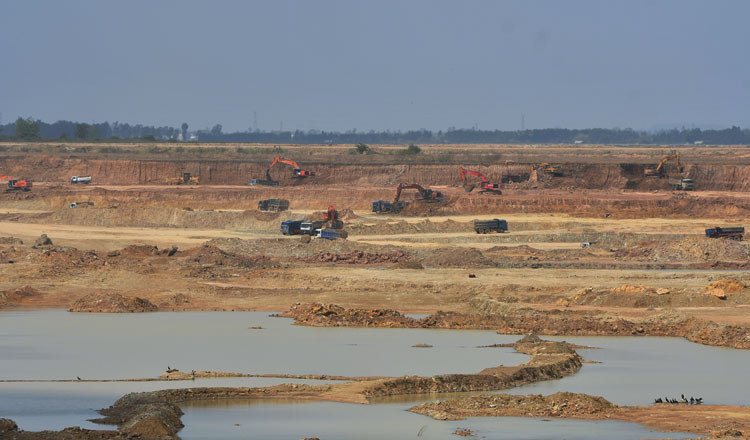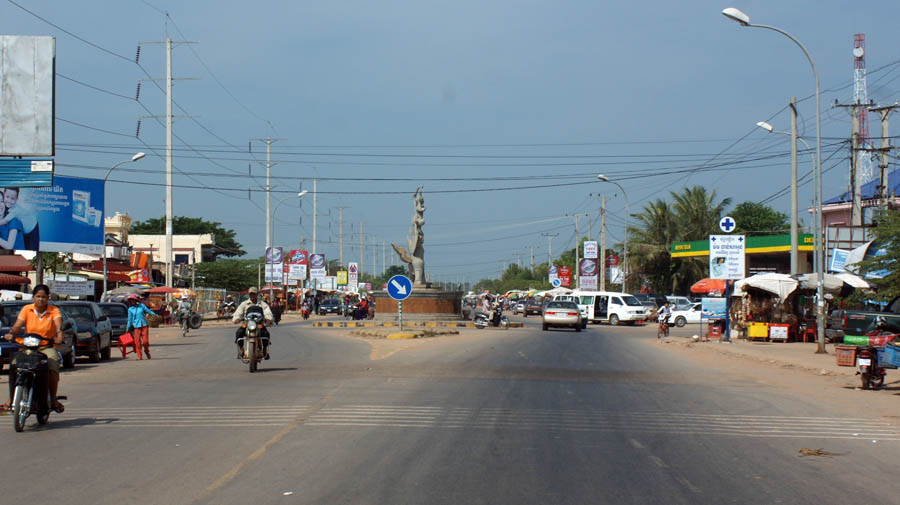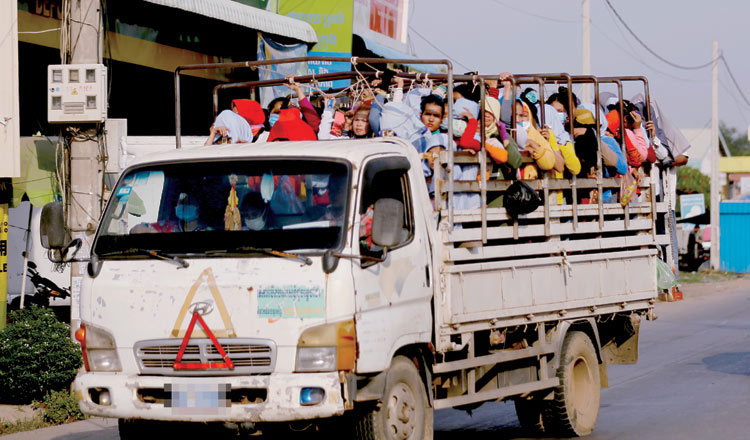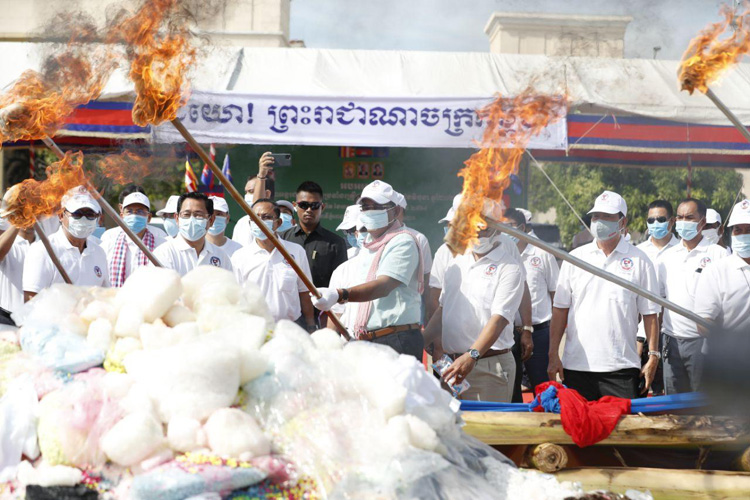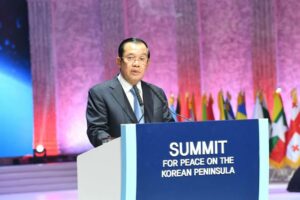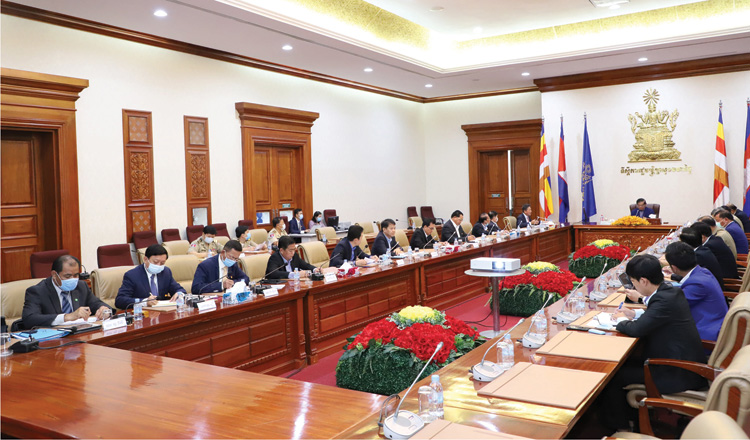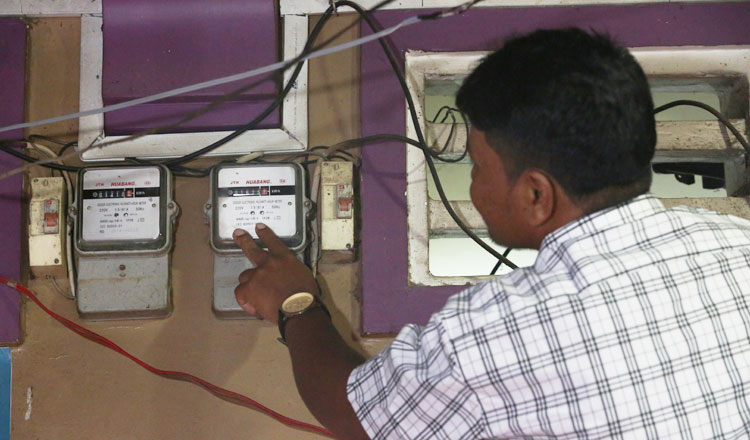Tamouk Lake Residents in Development Crossfire
Boeng Tamouk is one of the last remaining lakes in Phnom Penh. The lake has stood the test of time and brought harmony to many villagers living around the body of water. However, housing rights NGO Sahmakum Teang Tnaut said the Kingdom’s economy is rapidly growing and Boeng Tamouk is eyed by urban developers as prime real estate for residential areas, despite a sub-decree issued by the government to designate the 75-hectare lake as a public park.
Khmer Times reporter Som Kanika speaks to a politician advocating transparency in real estate projects and Boeng Tamouk residents to find out more about the lake’s development.
Grassroots Democratic Party president Yeng Virak says his political party supports the government’s sub-decree to designate Boeng Tamouk as a public park, but notes real estate development could cause problems similar to that of Boeng Kak’s.
The Boeng Kak lake was once the largest urban lake in the Kingdom before real estate developers began reclaiming land and building high-rise apartments. The project displaced a community of people who depended on the lake for financial support.
According to STT’s 16-page 2019 report, the government granted a 99-year lease to Shukaku Inc in 2007 and 4,253 families who had lived there around Boeng Kak lake were displaced.
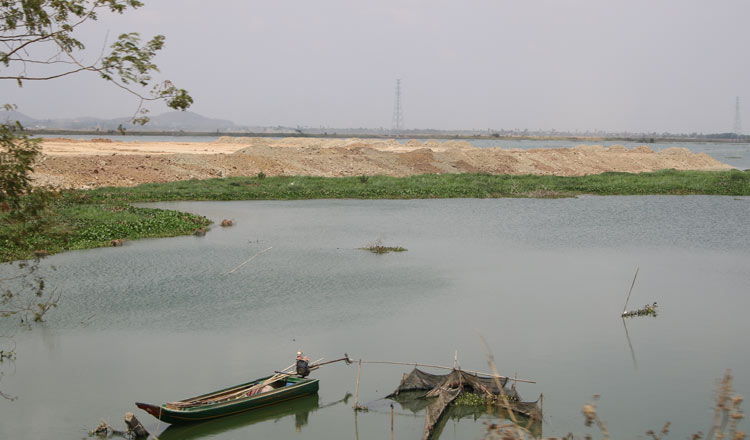
“The in-filling of the lake led to many homes to incur damage and flooding,” the report said. “It led to some families leaving by necessity and without proper compensation.”
Mr. Virak says he does not want to see Boeng Tamouk residents evicted from their homes.
“GDP has always wanted to see a government project that will allow residents to exercise and walk in a public park,” he says. “However, the [Boeng Tamouk development project] can still happen.”
Mr. Virak says major development plans must be transparent.
“I am happy to see Cambodia is developing, but at the same time, I also want to see transparency and integrity,” he says.
Met Meas Pheakdey, City Hall spokesman, and Sok Sambath, governor of Preak Pnov district, could not be reached for comment yesterday.
In August, the government designated 20 hectares around the lake as a modern vegetables and fruits market complete with parking space called the Doeum Kor market.
Last year government spokesman Phay Siphan defended the project, saying not every part of the lake will be reclaimed.
He said the market would be a tourist attraction, similar to some in Thailand.
According to the STT report, 16 out of 25 lakes in Phnom Penh were reclaimed, while the rest was partially filled with sand.
“In addition, Phnom Penh witnessed the loss of 40 percent of its wetland areas,” STT says in the report, noting the main reasons were the emergence of apartments, residential housing, and satellite cities.
“Historically, the lakes and wetlands have provided economic benefits to aquatic farmers and fishermen,” the report says. “As [Phnom Penh] grows, both have come under increasing threats from developers who are keen to in-fill the lakes and create a real estate project to generate profit – sometimes at the expense of local communities.”
Sao Mao, a resident of Boeng Tamouk, says she is in her 50s and a single mother of four. Ms. Mao says she has been living along the bank of the lake for 10 years and remembers when the waters stretched as far as the eye can see, filled with an abundant amount of fish.
She says she used to be able to earn enough to feed her family, but now only earns about $2.50 per day from fishing.
“There are no longer various types of fish like in the past because [a part] of the lake has been [reclaimed] for development,” she says. “I think [residents] will migrate to other areas.”
“In the past, we had a lot of fish, but we do not see them anymore,” Ms. Mao adds.
She says she is worried about her future because she was given an eviction notice from City Hall.
“If I am asked to leave again, I cannot do anything,” Ms. Mao says. “I have no power nor choice over the order from the authorities to leave.”
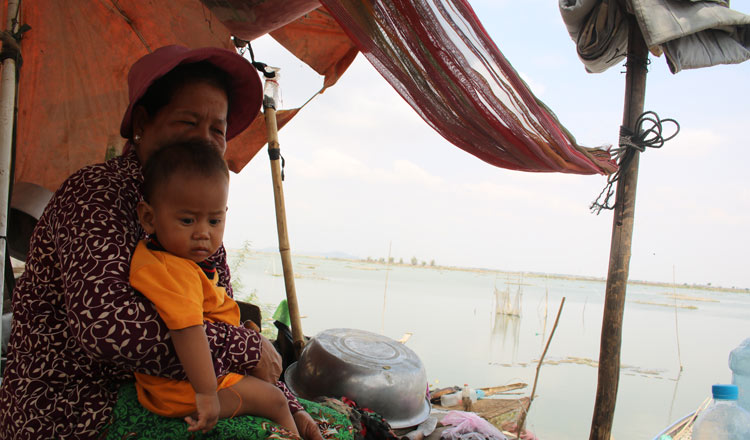
Chun Sokheng, a 51-year-old lotus farmer, is inspecting machinery used to fill sand into the lake.
Mr. Sokheng says the lake is getting smaller by the day and seeing the body of water go causes anxiety.
“Now they are partially [reclaiming] our lakes,” he says. “The parts reclaimed are getting bigger and bigger. Soon they will reach where my lotuses are.”
Mr. Sokheng says residents used to live in makeshift shacks along the bank, but City Hall evicted them in January last year.
He says the residents were told their land belongs to the state and they needed to leave.
Mr. Sokheng says the community was not consulted before the eviction notice was given.
“I am afraid the lake will be gone soon,” he says. “If that happens, hundreds of people who depend on the lake will suffer.”
Penh Channy, a fruit seller, says she was told to move her business to the market.
“Moving the market to the outskirts of the capital will make many business people here face difficulties and lose business,” Ms. Channy says. “People who buy wholesale will also face a big challenge.”
Khmer Times

